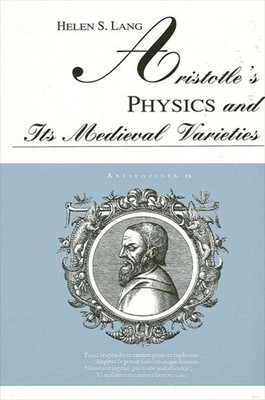
- We will send in 10–14 business days.
- Author: Helen S Lang
- Publisher: State University of New York Press
- ISBN-10: 0791410846
- ISBN-13: 9780791410844
- Format: 15.8 x 23.2 x 2.2 cm, minkšti viršeliai
- Language: English
- SAVE -10% with code: EXTRA
Reviews
Description
This book considers the concepts that lay at the heart of natural philosophy and physics from the time of Aristotle until the fourteenth century. The first part presents Aristotelian ideas and the second part presents the interpretation of these ideas by Philoponus, Albertus Magnus, Thomas Aquinas, John Buridan, and Duns Scotus.
Across the eight chapters, the problems and texts from Aristotle that set the stage for European natural philosophy as it was practiced from the thirteenth to the seventeenth centuries are considered first as they appear in Aristotle and then as they are reconsidered in the context of later interests. The study concludes with an anticipation of Newton and the sense in which Aristotle's physics had been transformed.
EXTRA 10 % discount with code: EXTRA
The promotion ends in 21d.22:37:31
The discount code is valid when purchasing from 10 €. Discounts do not stack.
- Author: Helen S Lang
- Publisher: State University of New York Press
- ISBN-10: 0791410846
- ISBN-13: 9780791410844
- Format: 15.8 x 23.2 x 2.2 cm, minkšti viršeliai
- Language: English English
This book considers the concepts that lay at the heart of natural philosophy and physics from the time of Aristotle until the fourteenth century. The first part presents Aristotelian ideas and the second part presents the interpretation of these ideas by Philoponus, Albertus Magnus, Thomas Aquinas, John Buridan, and Duns Scotus.
Across the eight chapters, the problems and texts from Aristotle that set the stage for European natural philosophy as it was practiced from the thirteenth to the seventeenth centuries are considered first as they appear in Aristotle and then as they are reconsidered in the context of later interests. The study concludes with an anticipation of Newton and the sense in which Aristotle's physics had been transformed.


Reviews